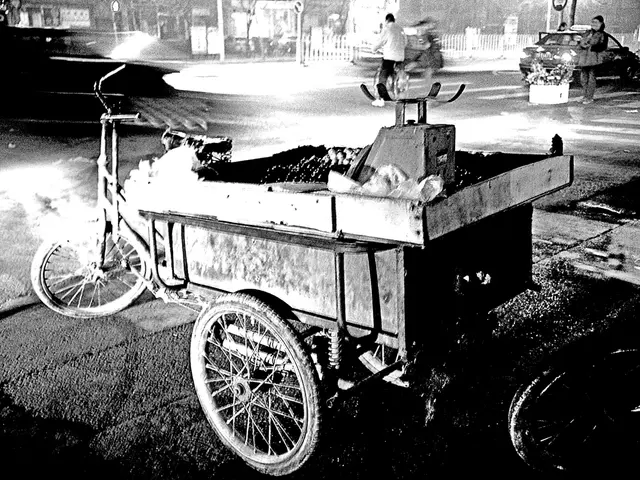Preparatory Measures Taken by a Limpopo NGO in Anticipation of Trump's Budget Reductions
When Sindy Nkuna woke up to an email announcing a temporary halt in US foreign aid funding in January, it was downright terrifying.
"I felt like I'd been hit by a truck," she confessed. "For days, I was a ball of nerves thinking about my family and me. It was surreal. I've got two boys."
Nkuna worked as a data capturer at the Hlokomela Clinic, located 200km from Polokwane, monitoring HIV data in the fruit and game farming community of the Mopani district, Limpopo. Her job was to track new HIV cases, HIV testing numbers, and treatment rates. The funding for her position, as well as six HIV testing counsellors, a site coordinator, and part of their financial manager's salary, came from a grant provided by the Anova Health Institute.
Anova Health Institute was the South African HIV organization that received the most funding from the President's Emergency Plan for AIDS (PEPFAR), a US government AIDS fund that financially supports HIV projects, primarily run by nonprofit organizations, in countries such as South Africa.
Nkuna nervously waited at home for any word on her job status. By the end of February, it was confirmed that almost all USAID funding, which included many PEPFAR-sponsored projects, would be permanently axed.
This meant Hlokomela was left without its HIV testing team that conducted fieldwork. Moreover, funding for essential equipment like cooler bags and transport costs for mobile testing clinics, which were all covered by Anova, were scrapped. HIV field services at the 50 sites across Hoedspruit farms and communities that helped test approximately 1,000 people for HIV every month were forced to shut down.
"It crippled our HIV outreach," lamented Christine Du Preez, founder of Hlokomela in 2005. "It was worse than the COVID-19 pandemic."
Understanding that they had to make due with what they had left, the team scrambled to figure out how to keep supporting their remaining staff and the 25,000 farmers, workers, and their families who relied on them for basic health services.
Unlike other organizations that also lost their USAID funding, Hlokomela was comparatively more prepared to weather the storm thanks to plans they'd made and lessons they'd learned over the past decade.
Embrace what you've got
Challenge: The loss of Hlokomela's field HIV testing team
Solution: With the clinic staff remaining unaffected by funding cuts, they relied on community health workers to direct patients to their clinic for testing. Additionally, HIV testing staff from other projects pitched in to help with testing.
Hlokomela operated three clinics and 9 mobile clinics that worked in 72 sites across fruit and game farms. Their team consisted of 106 staff members, including paid nurses, data capturers, lay counsellors, community health workers, and volunteer doctors who worked twice a week for free.
The Anova funding, which made up 2% of Hlokomela's overall budget, paid for the mobile testing clinics and the staff that ran them. In 2008, 28.5% of Hoedspruit farm workers were infected with HIV, more than 10 percentage points higher than the proportion of adults with the virus in South Africa in 2007, according to health department data.
Du Preez reports that their latest data from this year shows the proportion of HIV-infected farm workers has dropped to 6.5% due to Hlokomela's efforts. However, the sudden loss of funding caught them off guard, resulting in a near 90% drop in testing, according to Nkuna.
Faced with adversity, Hlokomela refocused its attention on the community health workers, known locally as nompilos, or "mother of life." The clinic has trained approximately 75 farmworkers in health education, blood pressure and heart rate checking, and chronic condition screening like HIV and TB. They receive a monthly stipend as part of their training.
- Despite the announcement of a permanent axing of most USAID funding for the Presidents Emergency Plan for AIDS (PEPFAR)-sponsored projects, including Hlokomela's HIV testing team, Sindy Nkuna's role as a data capturer at the Hlokomela Clinic continued to involve the documentation of HIV data within the science of health-and-wellness.
- The sudden loss of funding from PEPFAR left Hlokomela without essential equipment like cooler bags and transportation costs for mobile testing clinics, but the clinic's team found a solution by relying on community health workers, or nompilos, to redirect patients to their clinic for testing and by enlisting the help of HIV testing staff from other projects.
- The training of community health workers by Hlokomela on health education, blood pressure and heart rate checking, and chronic condition screening like HIV and TB was part of a comprehensive, ongoing effort to improve the health-and-wellness of the Mopani district's fruit and game farming community, which included conducting regular fieldwork to test for HIV.






